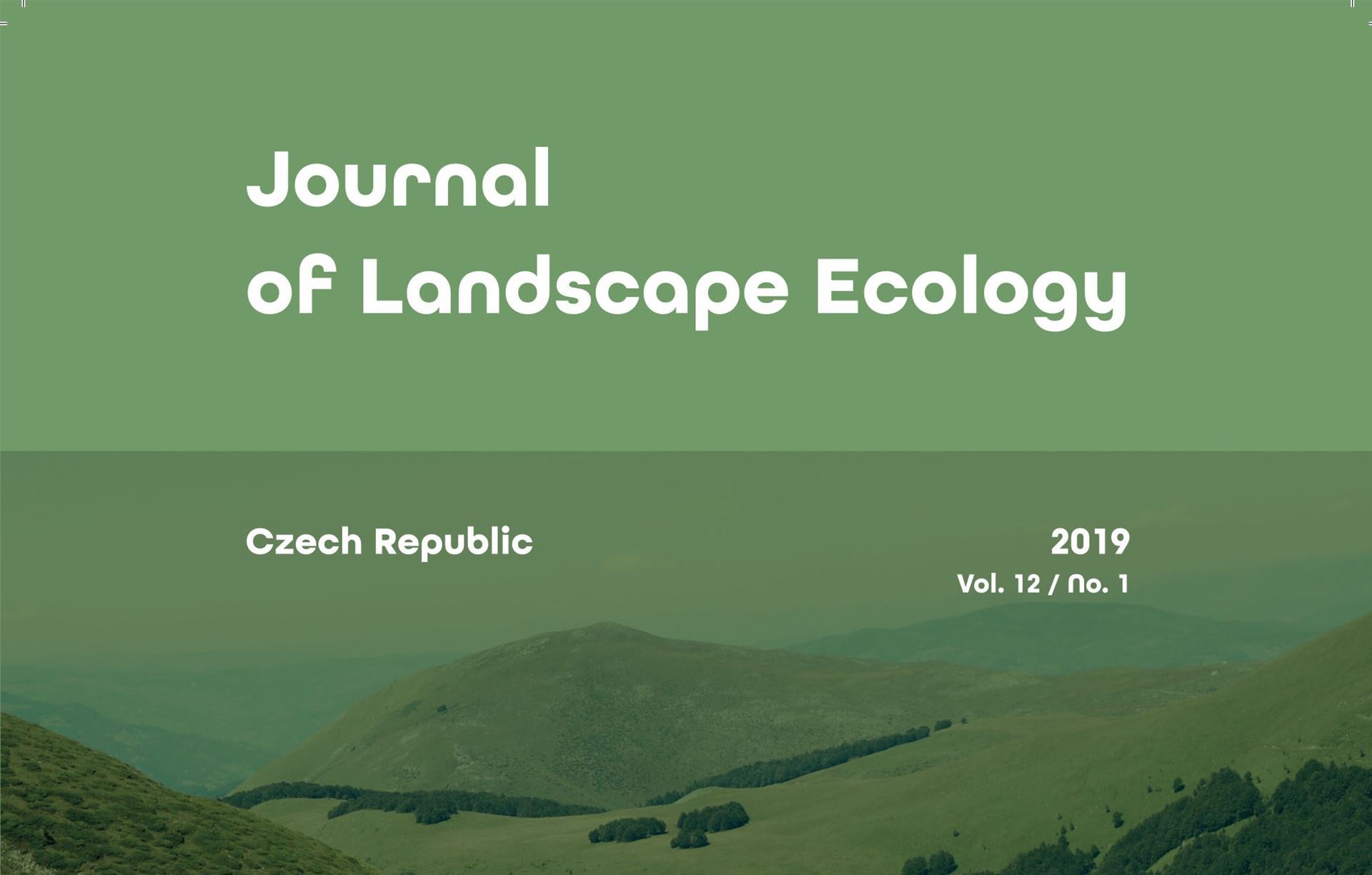
Journal of Landscape Ecology is a fully reviewed scientific journal published by Czech National Chapter of the Association for Landscape Ecology (IALE-CZ) since 2008. Currently, three issues and more than 20 articles are published annually. The journal is available in print (ISSN 1803-2427) and online as open access (ISSN 1805-4196) published by De Gruyter Open (https://sciendo.com/journal/JLECOL).
The Journal is indexed in SCOPUS (and many other databases) since 2013. The cite score is continuously increasing: 2021 – in the meantime 2.0; 2020 – 1.3; 2019 – 1.1; 2018 – 0.8; 2017 – 0.6 as well as SJR.
The Journal supports integration of knowledge from geo-, bio- and socio-sciences at the ecosystem and landscape level. Great emphasis is given to relationships between nature and culture including knowledge of ancient landscapes. The Journal publishes papers on spatial and temporal heterogeneity especially in the context of climate change and its impacts on terrestrial environment across adequate scale hierarchy. Expertise from the spheres of land-use planning and design, habitat and landscape typology, ecosystem management, biodiversity protection and ecological restoration, and rules of ecological processes are promoted. The scope of the journal includes different landscapes and ecosystems of the world.
Between 2019 and 2021, articles by authors from the following countries were published: Benin, Brazil, Canada, Colombia, Czech Republic, Egypt, Estonia, India, Indonesia, Iran, Kazakhstan, Malaysia, Mexico, Netherlands, Nigeria, Peru, Poland, Slovakia, Ukraine, USA.
Members of editorial board: Petr Maděra, Mendel University in Brno, CZ, Zdeněk Lipský, Charles University in Prague, CZ, Markéta Šantrůčková, The Silva Tarouca Research Institute for Landscape and Horticulture, Průhonice, CZ, Ivo Machar, Palacky University in Olomouc, CZ, Pavel Kovář, Charles University in Prague, CZ, Almo Farina, University of Urbino, Italy, Irina Goia, Babes-Bolyai University Cluj-Napoca, Romania, Rob H.G. Jongman, Wageningen, Netherlands, Marc J. Metzger, University in Edinburgh, UK, Dušan Romportl, Charles University in Prague, CZ, Alena Salašová, Mendel University in Brno, CZ, Jerzy Solon, Polish Academy of Science, Poland, Richard Stiles, TU Vienna, Austria, Jaroslav Vojta, Charles University in Prague, CZ, Thomas Wrbka, University of Vienna, Austria, Agnieszka Latocha, University of Wrocław, Poland, Robert Gerald Henry Bunce, Estonian University of Life Sciences, Tartu, Estonia.
We are continuously looking forward to good manuscripts for publishing.
Petr Maděra
Editor-in-Chief
Markéta Šantrůčková, Ivo Machar
Executive Editors